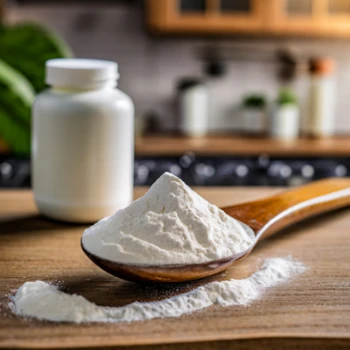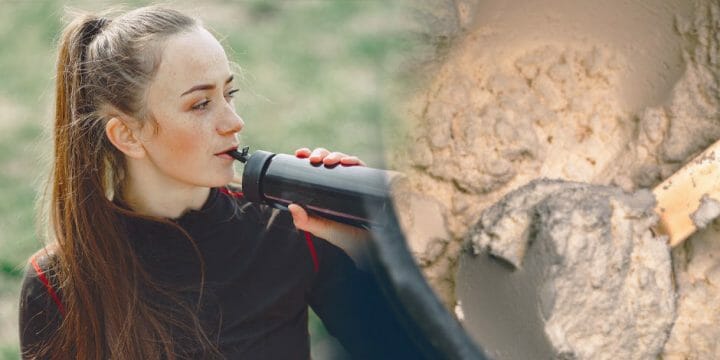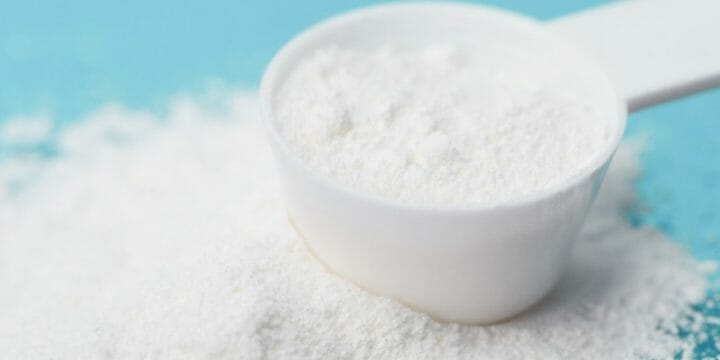From my own experience of working with a youth athlete patients, I remember the allure of creatine, a supplement many of us believed would amplify our muscle mass and elevate our performance on the field.
This product is increasingly popular among middle and high school boys, but the question is, should they even use it?
I spent the last few weeks making my own research and investigating medical journals and articles to see what the science says about this hotly-debated topic.
Here’s what you should know about the safety of creatine supplementation in teens.
Quick Summary
- Creatine supplementation is generally considered safe for teens, enhancing exercise performance and muscle growth, with a doctor's advice recommended before use.
- Research primarily on adults shows creatine can increase muscle strength and mass, but studies on teens are limited.
- A study by the American Academy of Pediatrics and the American College of Sports Medicine indicates a minor 3-5% performance increase in adults using creatine, questioning its necessity for teen athletes.
- Personally, I believe the focus for teen athletes should be on natural growth and proper training, rather than on supplements like creatine.
Side Effects in Teen Athletes
I recall the uncertainty surrounding creatine during my high school years, with limited studies available to confirm its safety and long-term effects on athletes.
I remember hearing whispers of fellow athletes facing liver and kidney issues, muscle cramps, and stomach pains, all allegedly linked to creatine use - a risk that made many of us pause.
Creatine may cause weight gain from water retention. Some supplements could contain harmful additives, leading to health issues like high blood pressure and liver damage.
While the physical benefits and risks of creatine are often discussed, it's crucial to also consider its potential psychological effects on teenagers.
Creatine might influence mood swings, anxiety levels, or even increase aggression in some individuals.
As a parent or guardian, it's essential to monitor not just the physical but also the mental well-being of teens using creatine.
Post you may like: Can Teens Take Pre Workout?
Should Youth Athletes Take It?

Reflecting on my adolescent years, the scarcity of research on creatine instilled a sense of caution, leading many of young athletes to steer clear of it and other performance-enhancing supplements.
Instead of relying on creatine and other supplements, teen athletes should shift their focus on nailing down their Teenage exercise and training regime.
"Training, nutrition, and sleep need to come first. Unless you can say yes to all of those things, supplements should be off the table."
- Disa Hatfield, Associate Professor at the University of Rhode Island
A significant concern is the ease with which teens can buy creatine, sometimes recommended by health food stores, despite medical advice to the contrary.
There are also no legal restrictions on their sale, which means children can buy them without an adult's knowledge or consent.
That's why parents need to talk to their youth athletes about the risks associated with the use of creatine. However, if the athletes aren't consuming meat, they should look for some proven vegan-friendly creatine supplements.
Another aspect to be wary of is how creatine interacts with other supplements or medications your teen might be taking.
Certain combinations can lead to adverse effects.
It's always a good practice to consult with a healthcare professional about any potential interactions before starting a creatine regimen, especially if your teen is on other medications.
What Teen Athletes Know About Creatine?

Studies conducted among adults have shown that some creatine users may see a 3-5% increase in their performance [1].
Experts and medical institutions agree that the minor performance boost from creatine is outweighed by natural growth and advise against its use by teen athletes.
I can still feel the pressure of my younger days, the competitive atmosphere that tempted many of us, including myself, to consider creatine as a means to gain an edge in sports.
Teens may receive misleading information about supplements from peers or ads. Parents should guide them in understanding that supplements aren't necessary for athletic success.
To help them think critically about the claims that these companies make, you may point them to some reliable health information on sports nutrition that discusses the effect of creatine supplementation in active adolescents and youth.
Benefits Of Creatine Monohydrate

The efficacy of creatine supplementation in athletes has long been proven by numerous studies.
The same search mentioned above found that this sports nutrition supplement has the ability to increase muscle strength and lean body mass.
It’s also known to improve running speed, exercise capacity, and training adaptations.
Creatine also plays a key role in energy production, particularly for short-burst activity lasting less than 10 seconds.
It replenishes the body’s levels of ATP, an energy-transporting molecule that muscles use for movement.
By increasing stores of creatine (aka phosphocreatine) within the muscle, it may improve performance by increasing the stamina, energy, and muscle power of its users during exercise.
For these reasons, creatine remains one of the biggest players in the nutritional supplement market.
FAQs
Why Is Creatine Bad for Minors?
The use of creatine among teens hasn’t been widely studied, so there’s not enough evidence supporting the idea that creatine is bad for minors. However, creatine supplementation carries several health risks in adults, which means teens should steer clear of them until there are enough studies to prove that it’s safe for young people.
At What Age Can You Start Taking Creatine?
You can start taking creatine at the age of 18. Since there’s not enough data on the long-term health effects of creatine use in growing children, adolescents younger than 18 shouldn’t be taking them. Also, most product labels contain a recommendation stating that individuals under 18 years old shouldn’t use creatine.
Can Creatine Stunt Growth?
There's no evidence proving that creatine can stunt growth. On the contrary, some studies indicate that creatine decreases myostatin levels, a protein responsible for inhibiting muscle cells growth.
References:
- https://pubmed.ncbi.nlm.nih.gov/34234088/
About The Author
You May Also Like






